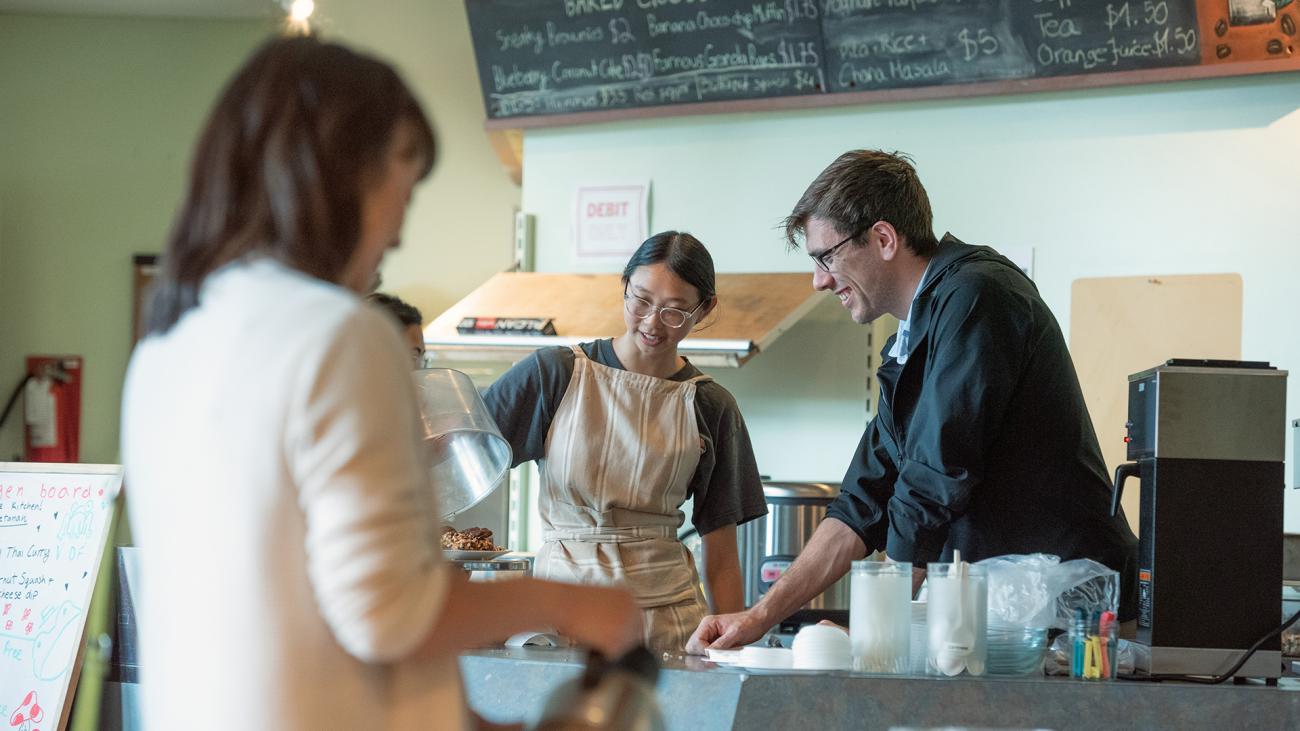How UBC student Cody Rector is tackling food insecurity
Once food insecure himself, Cody is modelling solutions to the issue at a UBC café. And it all started with an entrance award, which made attending UBC possible.
For Cody Rector, being a chef wasn’t exactly what he imagined it would be.
After graduating from the Culinary Institute of Canada and working as a sous chef for a few years, he questioned the efficiency of the industry and started imagining ways he could use his skills to make food more accessible.
In 2017 he applied to the Bachelor in Food and Nutritional Science program at UBC with a dream of one day owning his own food production company. Cody grew up in a small town in Nova Scotia in a food insecure household. Money was always tight and attending university would be difficult, so he applied for the Centennial Scholars Entrance Award — a donor-supported award that he was thrilled to receive.
“Through the award, donors gave me the opportunity to get my footing at UBC and helped me experience university in my own way,” says Cody. “They gave me the financial stability to explore campus, get involved, and try new things without having to worry about making rent or having enough money to buy groceries.”
In his first year Cody stumbled upon Agora — a student-run campus café that serves $5 meals — and felt right at home. He started volunteering and quickly realized that, much like the restaurant industry, there were inefficiencies. Operational costs were high and wait times were long, which meant the café operated on a deficit. Cody eventually took on the role of general manager and started implementing changes such as condensing the menu and switching from paid staff to a volunteer-run model.
Cody volunteered at Agora throughout his undergraduate degree and decided to return to UBC in September 2022 to pursue a Masters in Food Science. His project looked at preventing malnutrition in astronauts by developing a technique to increase the shelf life of essential omega-3 fatty acids using quinoa.
His project garnered international media attention, but during a TV interview Cody kept thinking he’d rather be talking about Agora. The following day he connected with faculty at Land and Food Systems and changed his thesis project to focus on Agora, studying whether a volunteer-run model is sustainable, how effective the café is at addressing food insecurity, and how this model could be expanded beyond the UBC campus.
Today, Agora continues to thrive under Cody’s leadership. The café serves 150 meals a day during the school year and the profits are used to fund community dinners twice a week, with roughly 100 free meals handed out at each event. After securing additional grant funding, Cody was able to lead the charge in opening a second Agora location on campus in March 2023 and he hopes to open a third location in the future.
“I’m not looking to disrupt the food industry; I’m looking to provide a real, tangible mechanism for addressing food insecurity,” says Cody. “At Agora we take food insecurity very seriously and focus on four pillars which are stability, utilization, access, and availability. For example, when we think about accessibility, we’re cash and debit only, but if someone shows up with only their credit card, we’ll give them a meal for free because payment method shouldn’t prevent you from being able to access food.”
For Cody, things have come full circle. Once food insecure himself, he is now addressing food insecurity on the UBC campus. And all of this started with the Centennial Scholars Entrance Award, which made attending UBC possible.
“I would like to say thank you to every person who donated to the Award and for recognizing the type of impact it can have on a person’s life,” says Cody. “There’s a 99.9% chance donors didn’t think someone who won this award would be looking to create a reproducible model for sustainably addressing food insecurity, but I hope they’d be happy to see me and think, ‘I helped that student achieve something really cool.’”



































